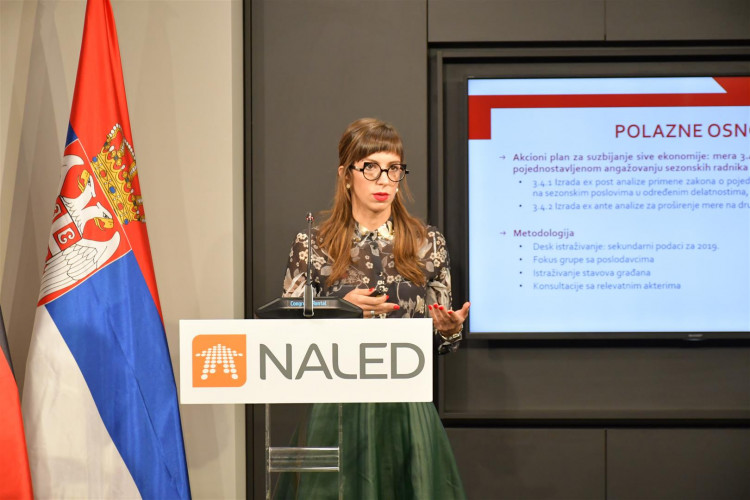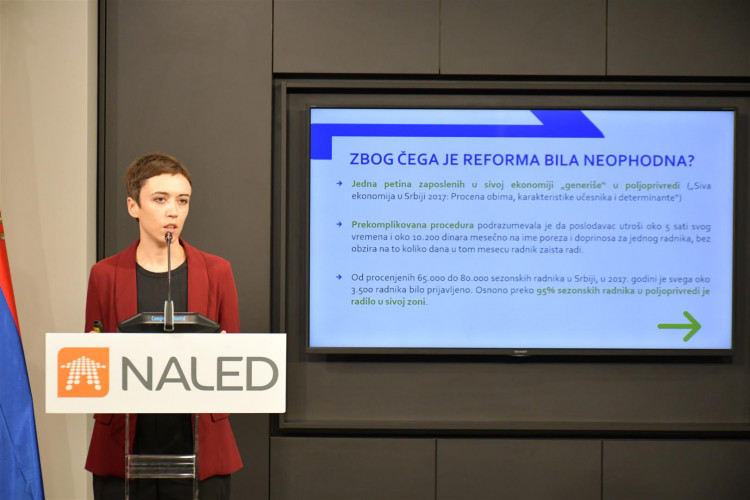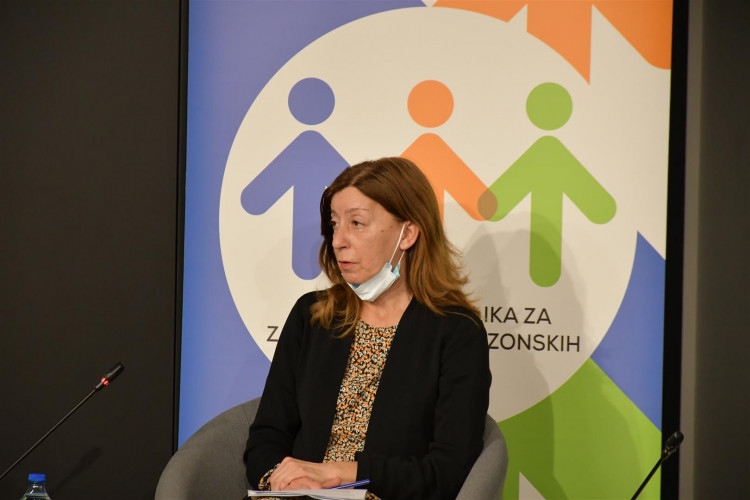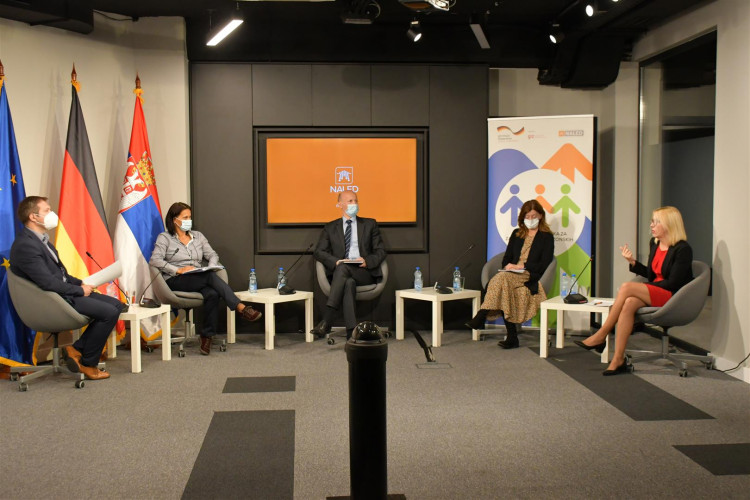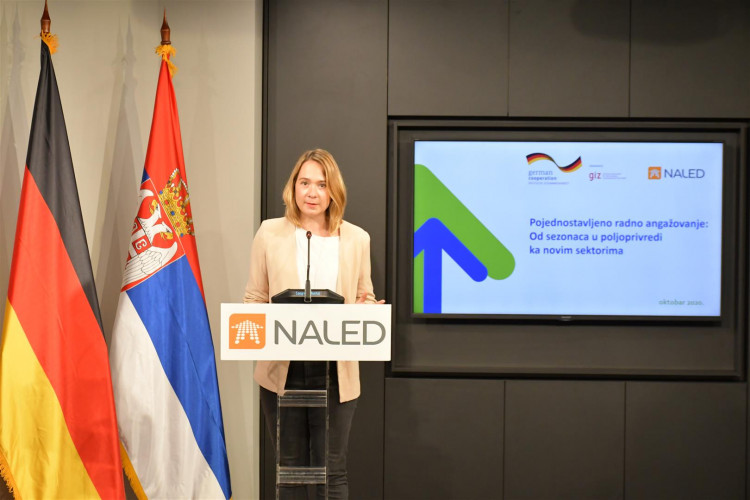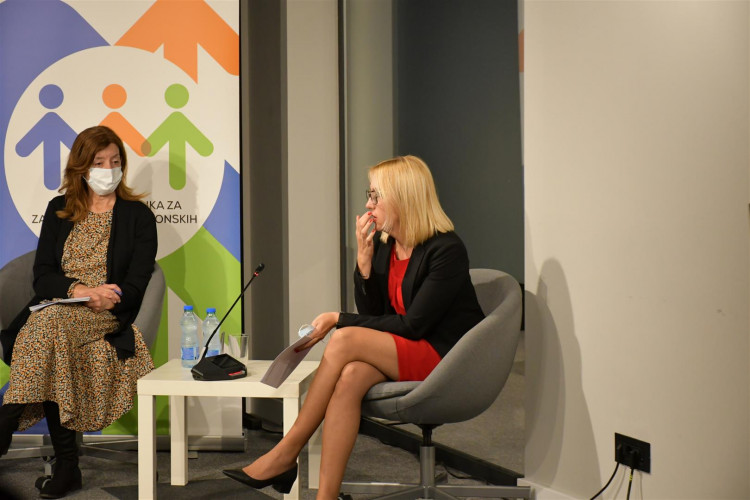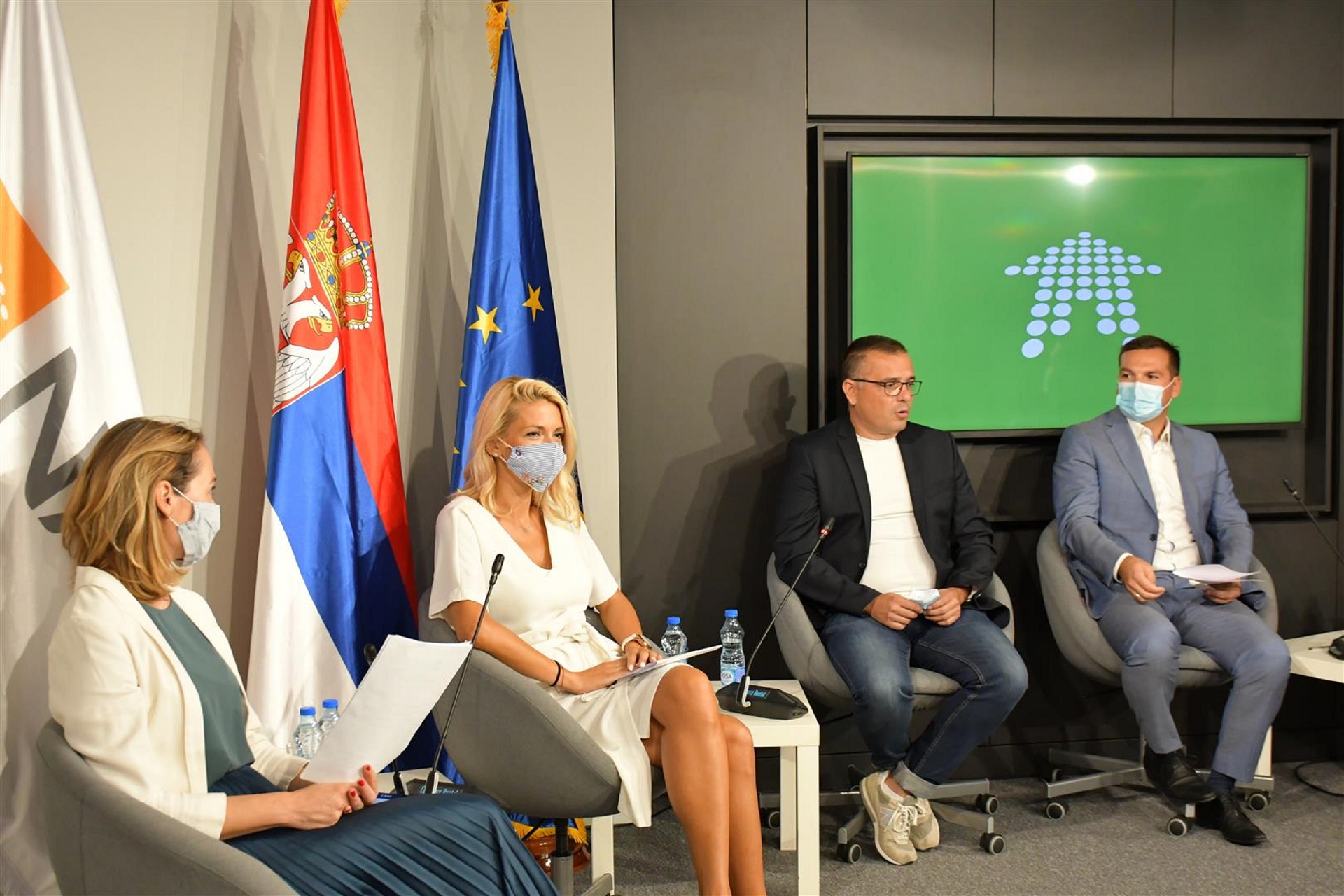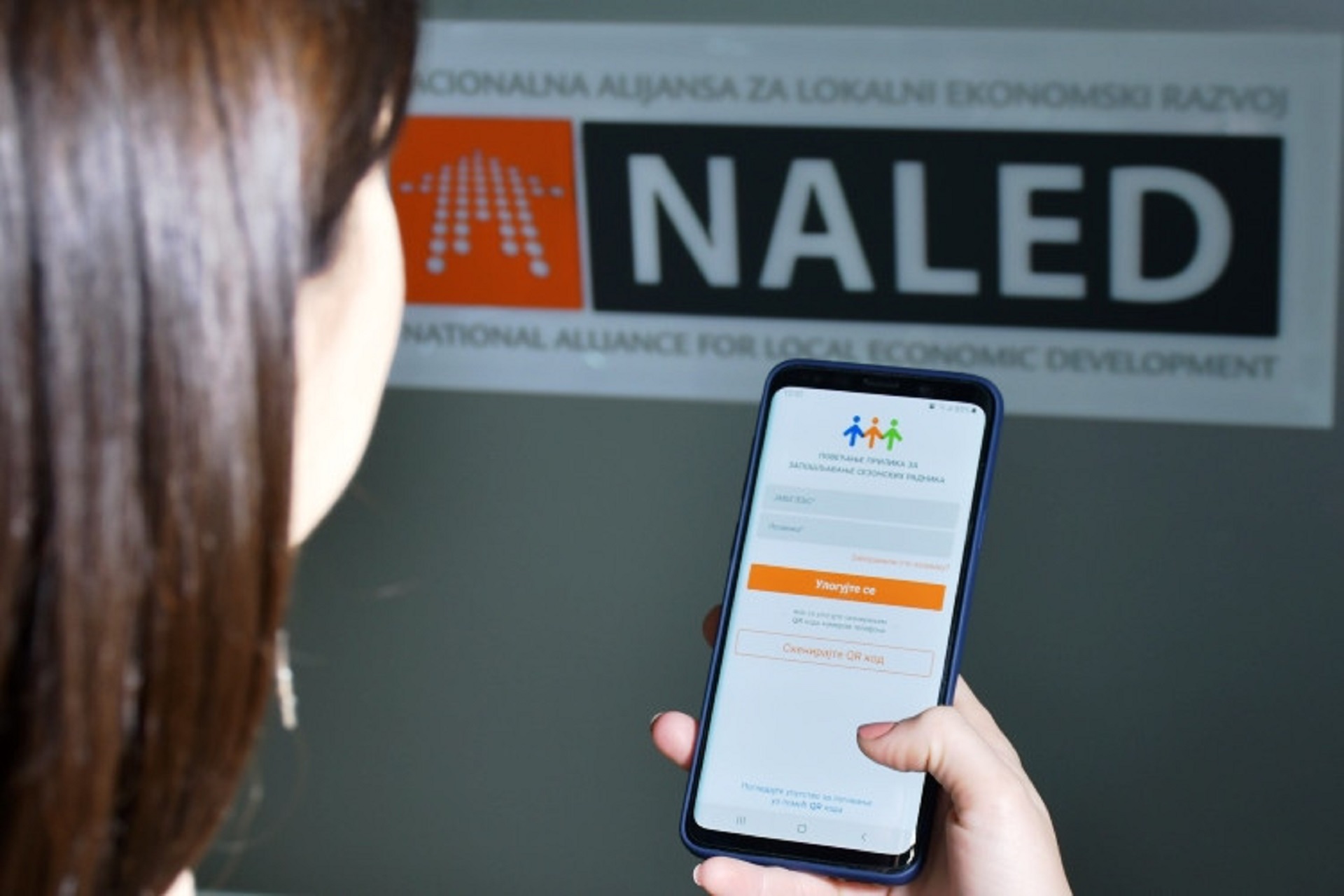80.000 non-registered workers wait to be introduced in legal flows
At least 80,000 workers on construction sites, occasional bartenders and waiters, babysitters, cleaning staff and workers in similar professions work under informal employment. The most common reason why employers don't even think of registering them include high expenses, complicated procedure and an unflexible model of contracts, it is shown in the analysis performed by NALED and German Development Cooperation about the possibilities of expanding the system for simplified engagement of seasonal and occasional workers, which is currently applied only in agriculture.
Out of a total number of employed people in Serbia, one in five are not registered, and along with agriculture, most of them are engaged in tourism and hospitality sector (15.1%) and construction (11.3%), while a half of people engaged in housekeeping and home assistance do not have a contract, nor the right to pension insurance and protection in case of work injuries for each day they spend at work.
- One of the ways to introduce these workers into the legal flows and protect their rights, is to expand the simplified registration procedure via e-portal or online app to other sectors. In a year and a half since the system was introduced in agriculture, the number of registered seasonal workers has increased more than 10 times – from 3,500 to around 42,500 workers. This is a major success and a best practice example that could be applied to other sectors with certain adaptations – said the Head of Food and Agriculture Unit in NALED Tisa Čaušević.
- German Development Cooperation has supported the introduction of electronic registration for seasonal workers, with the aim to increase employment opportunities and reduce the shadow economy. Our analysis has shown that significant positive effects have been achieved for all sides - for employers, the costs oh hiring seasonal workers have been reduced, and the registration procedure reduced from five hours to five minutes, while the workers now have the right to pension and work injury insurance. We also mustn't forget that the state received more efficient administration and gained additional four million euros in budget revenues based on taxes and contributions. This is why in cooperation with NALED we wish to support the replication of this model to other sectors and Western Balkans countries – said Zoran Jakovljev, Project Manager in GIZ.
Informal employment is one of the key generators of shadow economy, as out of 100 dinars in the shadow zone, 62 dinars stem from non-registered salaries, while 38 dinars refer to non-registered profit. The problem is further aggravated by the fact that a third of informally employed people in Serbia work for less than three months, one in five work up to six months, and only 16% are engaged for a period of up to one year. Around 126,000 work based only on oral agreement.
A good example are the workers in the field of tourism and hospitality, primarily for jobs where workers are hired based on current needs, or increased amount work, such as bartenders, cooks, waiters. They often work for multiple employers during a single day, with part time engagement for several days a week, so the registration procedure for them is complicated and expensive.
A similar situation refers to workers engaged for house works, engaged by 55,877 households a year on average, often working for sevelar employers during the same day. A specific situation refers to construction sites, with estimated 37% workers going unregistered, and one in three only working occasionaly, which makes the employers reluctant to deal with the registration procedure. On the other hand, occupational injuries are quite common in this line of work, which makes unregistered workers particularly vulnerable, as they depend solely on the employers' will to cover the medical expenses, it is shown in NALED's analysis.
The key reason for the high rate of informal employment, as seen by the employers, is the high tax burden on labor. For a contract on occasional and temporary engagement, they need to give an average monthly amount of 16,000 dinars for taxes and contributions. An examle of online seasonal engagement of workers in agriculture stipulates a fixed amount for this purposes of 300 dinars per day of engagement, which enables employers to be flexible, while ensuring the right to pension and occupational injury insurance to workers.
The analysis findings show that there are between 35,000 and 55,000 collectors of secondary raw materials in Serbia and they all work informally, but there is no standard employer-worker relation between them and the operators bying off the materials. Therefore, NALED and GIZ recommend the establishment of a special Registry of individual collectors, with parallel introduction of incentives: the workers would not lose their unemployment status, they could get an increase of social assistance amount by 20%, the state could pay their pension insurance, they would be given priority to participate in public works, possibility of using subsidies and other budget transfers and the right to perform waste separation for the needs of public utilities.
Which professions would benefit from the new registration system?
With certain adaptations, the electronic system for registering seasonal workers in agriculture could be expanded to household and home assistance jobs such as babysitting, caregiver for the elderly, pet sitting, cleaning and maintenance. In the field of tourism and hospitality, this would refer to cooks, waiters, bartenders and cleaners hired based on the current needs on a daily basis, while in the field of construction this could relate to workers performing no-qualification physical work (loading/unloading and transfer of materials and construction tools, manual digging and backfilling, cleaning of construction site etc).

